______________________
Day 1
One health and Emerging viruses
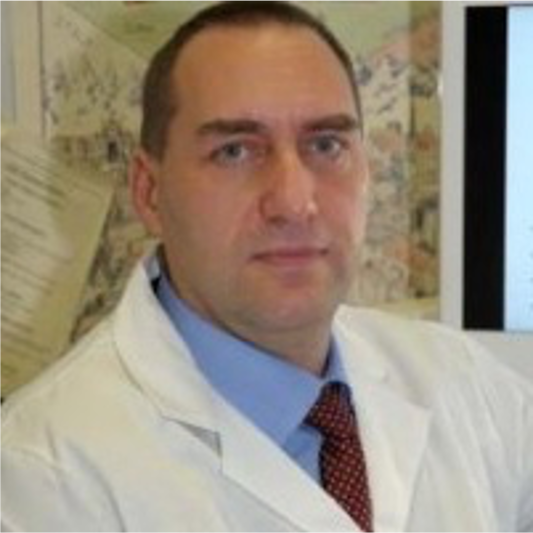
Giovanni Maga
(National Research Council, Pavia, Italy)
Dr. G. Maga has been working since his graduation on the enzymology of DNA replication. His research has focused on the characterization of different enzymatic systems responsible for nucleotide metabolism and the duplication of the genetic information in human cells and viruses as well as in protozoal parasites. In recent years, he has also started to dissect the biochemical pathways involved in coupling the DNA replication and repair machinery to cell cycle regulation in human cells. His interest has been devoted both towards the elucidation of basic molecular processes and to the exploitation of novel enzymatic targets for antiviral and anticancer chemotherapy.
Presently his main lines of research are: i) Enzymology of DNA replication in eukaryotic cells; ii) Novel antiviral strategies against human hepatitis C virus and influenza A virus; iii) Development of novel anti-HIV compounds; iv) Molecular basis for HIV drug-resistance; v) Novel targets and drugs for anticancer chemotherapy
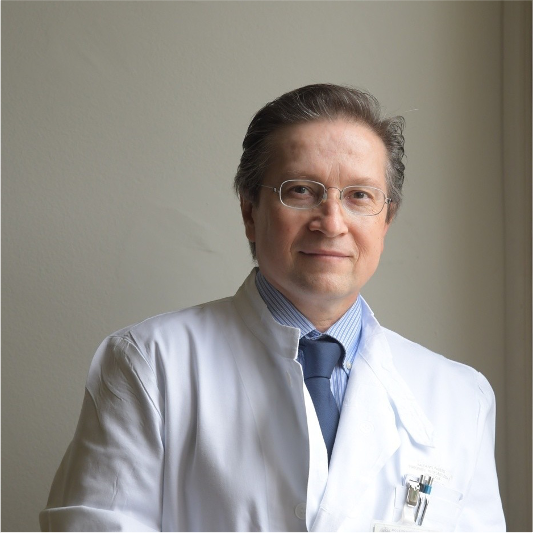
Fausto Baldanti
(University of Pavia – Policlinico San Matteo, Italy)
Fausto Baldanti graduated as Medicine Doctor at the University of Pavia in 1990. In 1995 he achieved the Specialization in Infectious Diseases at the University of Pavia and in 2004 in Microbiology and Virology at the University of Padua. He is Full Professor at the University of Pavia and director of Microbiology and Virology Specialization school of Pavia.
From 2010 he is Head of the Molecular Virology Unit, Microbiology and Virology Department of Fondazione IRCCS Policlinico San Matteo, Pavia, Italy.
His major scientific activity is focused on development and validation of molecular tools for diagnosis and monitoring of viral infections, study of mechanisms of resistance to antiviral drugs and of pathogenesis of virus infection in immunocompetent and immunocompromised hosts, diagnosis and treatment of opportunistic infections in transplanted recipients and surveillance of emerging and reemerging virus infections.
Fausto Baldanti is coauthor of more than 385 papers published on international scientific journals (h-index 54, more than 12424 citations according to Scopus). and of more than 450 presentations (oral and poster) at Italian and International Congresses. He has been awarded with the Heine Medin Medal by the European Society for Clinical Virology and with multiple major competitive grants.
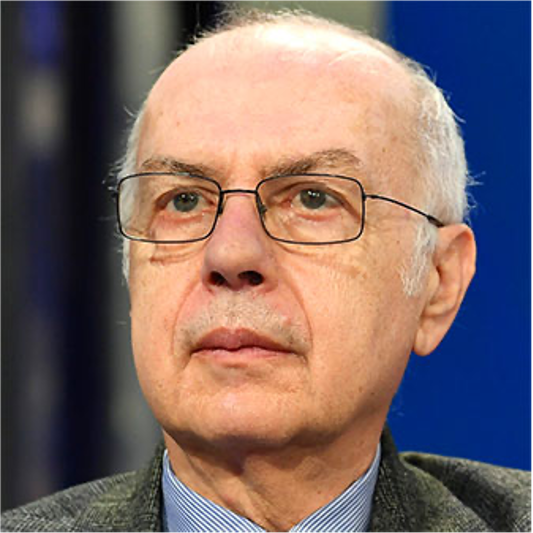
Giovanni Rezza
(Istituto Superiore di Sanità, Rome, Italy)
He is director of the Department of parasitic and immune-mediated infectious diseases of the Italian Istituto Superiore di Sanità.
He is the author of over 320 articles in international journals, numerous articles in Italian journals, book chapters in Italian and English and three books.
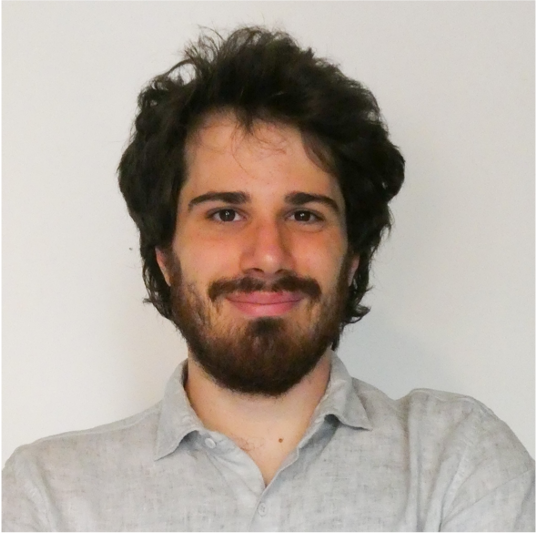
Umberto Palatini
(University of Pavia, Italy)
He is a young postdoctoral fellow working at the crossroads between genomics, virology, and entomology. He holds a M. Sc. In Molecular Biology and a PhD in Genetics, Cellular and Molecular Biology. He is interested in tropical and emerging infectious diseases spread by arthropod vectors such as the arboviruses Dengue and Chikungunya. Using bioinformatics and genetic engineering he investigates the biology of vector-mediated pathogen transmission, with a focus on mosquito genomics and small-RNA mediated antiviral immunity. During his PhD he coordinated an international consortium to produce an improved genome assembly and annotation of the Ae. albopictus genome and he conducted fieldwork in Southern China and in the United States to investigate the mosquito virome and response to viral infection.
______________________
Day 2
SARS-CoV-2
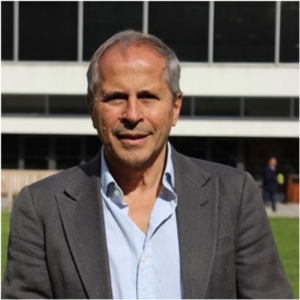
Andrea Crisanti
(University of Padova, Italy)
Andrea Crisanti is Director of the Department of Molecular Medicine and of the Laboratory of Virology and Microbiology at the Hospital/University of Padua, Italy. He recently returned to Italy from Imperial College London, where he is professor of molecular parasitology (currently on leave).
Professor Crisanti has pioneered the molecular biology of the human malaria vector Anopheles gambiae and has made several important scientific contributions that advanced the genetic and molecular knowledge of the malaria parasite and its mosquito vector. His work is based on a visionary solution aimed to harness genetic elements similar to yeast homing endonuclease genes that would allow genetic modifications to spread from a few individuals to an entire vector population. These modifications would be able to either interfere with mosquito fertility, thereby causing population suppression, or make mosquitoes resistant to the malaria parasites, rendering them innocuous, thus blocking the disease transmission in its most important vector, Anopheles gambiae. The power of this approach was recently demonstrated by the crashing of laboratory cage populations inoculated with a relatively small number of individuals carrying a gene drive construct that targeted a conserved and constrained sequence in a female-specific region of a gene called doublesex. This remarkable breakthrough has important implications, well beyond malaria, for the field of synthetic biology and gene editing as whole, and will inform advances in the control of other vector-borne diseases, of agricultural pests threatening our food security, and of invasive species in fragile ecosystems.
More recently Professor Crisanti has excelled for the study of Vo’ Euganeo, a pilot study of great importance on the first outbreak of Covid-19 in Italy, with results that have been instructive to implement virus control measures both nationally and in other countries, and for his involvement in a dedicated high-caliber task force for the management of the emergency in Veneto.
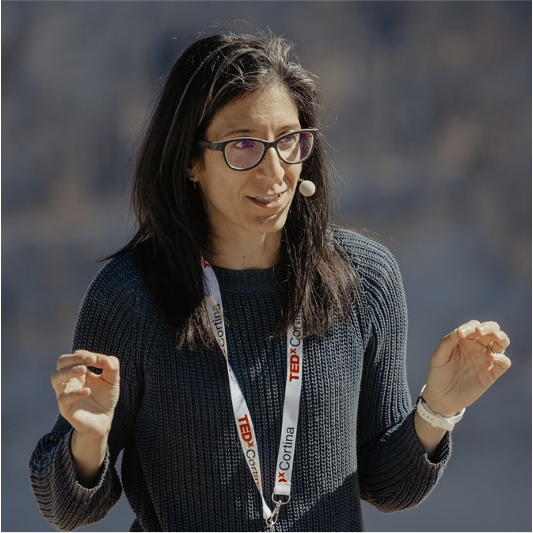
Ilaria Dorigatti
(Imperial College London, UK)
Ilaria Dorigatti is a Lecturer and Sir Henry Dale Fellow at the MRC Centre for Global Infectious Disease Analysis at Imperial College. She uses mathematical and statistical models to characterise the transmission dynamics of emerging pathogens and assess the potential impact of new interventions. Her research focuses on outbreak analysis and modelling, and on the spatiotemporal dynamics of vector-borne infections such as dengue, Zika and Yellow Fever. As a member of the WHO Ebola Response Team, she contributed to the early characterisation and monitoring of Ebola transmission during the 2013-2016 epidemic in West Africa. Her work on the immunogenicity, efficacy, and optimal use of the first licensed dengue vaccine informed the current WHO recommendations on dengue vaccination. She has been working on SARS-CoV-2 since January 2020. She is part of the Imperial College COVID-19 Response Team, and her work helped characterise the size of SARS-CoV-2 epidemic in Wuhan and the risk of death due to COVID-19 at the start of the pandemic. In collaboration with the University of Padova, she has characterised the extent of asymptomatic SARS-CoV-2 infection from sequential swab surveys conducted in Vo’, Italy. More recently, she has developed mathematical models to quantify within-household SARS-CoV-2 transmission and the effect of mass testing and contact tracing on epidemic control, using sequential population-wide serological surveys of the Vo’ population. She is also interested in better understanding the role of climatic seasonality on the transmission of SARS-CoV-2.
Web: https://www.imperial.ac.uk/people/i.dorigatti

Francesco Lescai
(University of Pavia, Italy)
Francesco has a M.Sc. in Medical Biotechnology and a Ph.D. in Experimental Pathology. He developed an expertise in Bioinformatics, Genomics and Statistical Genetics.
He previously worked at UCL, where he first developed the analysis pipelines for UCL Genomics, the NGS facility of the Campus. He then led the Bioinformatics at the Centre for Translational Genomics, a partnership between ULC Institute of Child Health and Great Ormond Street Hospital. He moved to Aarhus University as Associate Professor in Genomics and Bioinformatics, where he led the Bioinformatics analyses in Bipolar Disorder and Schizophrenia for the iPSYCH consortium.
Later, he worked for two years in QIAGEN Bioinformatics, as part of the Global Product Management team for the CLC portfolio.
Before joining the University of Pavia as Associate Professor in Bioinformatics, Francesco worked as Head of Bioinformatics for the Medicines and Healthcare products Regulatory Agency in UK.
Web: https://lescailab.unipv.it
______________________
Day 3
Covid epidemiology and vaccines
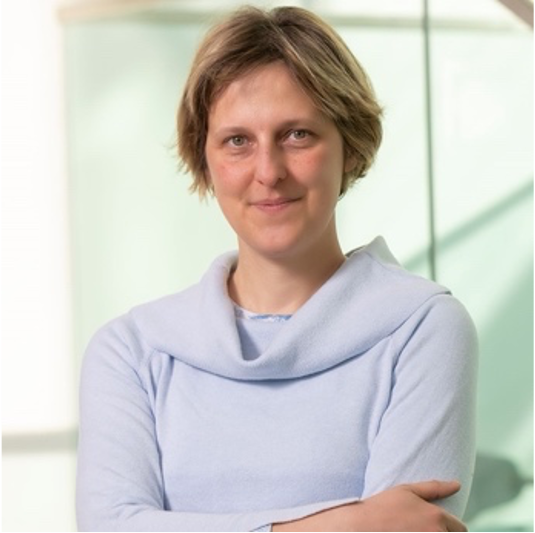
Claudia Sala
(Fondazione Toscana Life Sciences, Siena, Italy)
Claudia Sala trained as molecular microbiologist in the laboratory of Prof. Daniela Ghisotti, at the University of Milan, where she obtained her degree in Biological Sciences and the PhD in Genetics and Molecular Biology. She worked as a post-doctoral fellow in the laboratories of Prof. Stewart Cole, at the Pasteur Institute in Paris and at EPFL in Lausanne, where she was involved in several research projects, including M. tuberculosis functional genomics and Type VII Secretion System. In 2019 she moved to Fondazione Toscana Life Sciences in Siena, in the group led by Prof. Rino Rappuoli, and performs research on monoclonal antibody discovery.
Web: https://www.toscanalifesciences.org/it/progetti/monoclonal-antibody-discovery-mad-lab/claudia-sala-m/
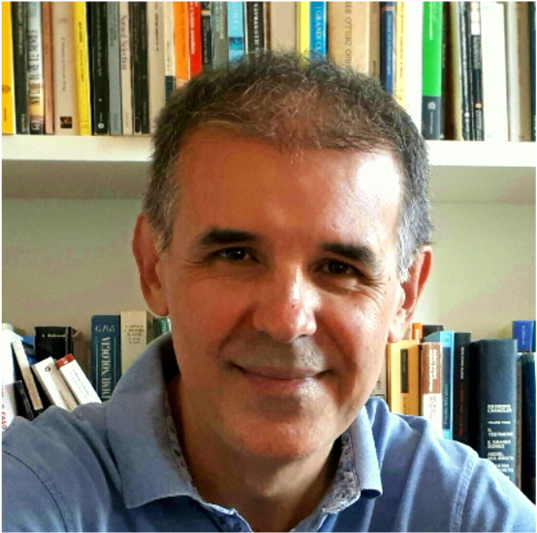
Claudio Bandi
(University of Milan, Italy)
Claudio Bandi teaches Microbiology, Parasitology, Evolutionary Biology and History of Biology at the University of Milan. He earned his PhD in Comparative Pathology at the University of Milan in 1996. He is the author of over 200 peer-reviewed publications in scientific journals. His major achievements include the discovery of a new form of symbiosis (i.e. the association between Wolbachia and filaria nematodes) and the description of Midichloria mitochondriias the first intramitochondrial bacterium. As a professor at the University of Milan and as coordinator of a parasitology and microbiology laboratory, he has trained several master and doctoral students and postdocs, some of whom are now researchers or professors in universities in Italy and in other countries.
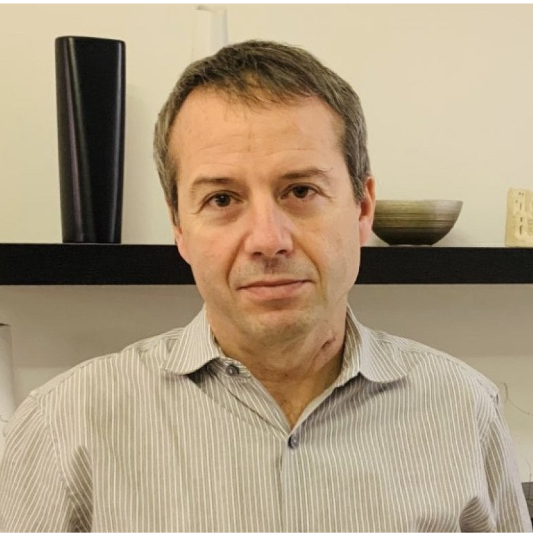
Andrea Carfi
(Moderna, Cambridge, USA)
I am a discovery leader with 15 years experience in managing global teams and projects in Pharmaceutical R&D organizations. I have a background in vaccine development, drug discovery, infectious disease, protein biochemistry and structural biology. Over the years I have provided critical contributions to the discovery, design and advancement of novel vaccine candidates and small molecule drugs as well as validation of targets for therapeutic intervention. After receiving my doctorate at the IBS in 1997, I completed my training as a postdoctoral fellow at Children’s Hospital (Harvard University) in Boston, MA. I then moved to industry, joining Merck in 2002. I returned to Cambridge (USA) in 2010 as a senior manager first at Novartis Vaccines and then GSK vaccines. I joined Moderna in 2017, where I contributed to the development of Moderna’s COVID-19 mRNA vaccine.
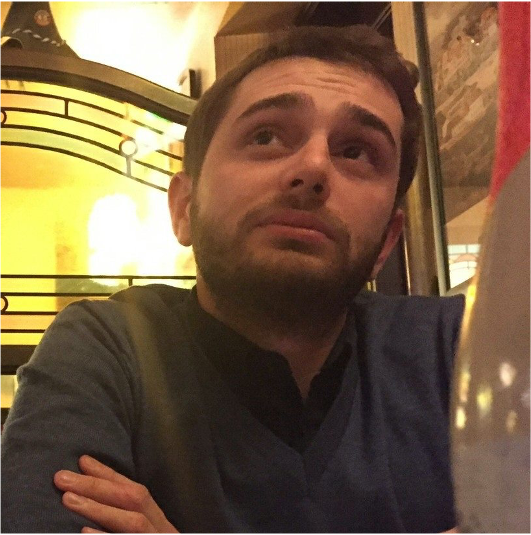
Stefano Gaiarsa
(Policlinico San Matteo, Pavia, Italy)
Stefano Gaiarsa is a bioinformatician, currently working as a Researcher at the Fondazione IRCCS Policlinico San Matteo in Pavia. He acquired an M.Sc. in biotechnology at the University of Milan, where he also obtained his Ph.D. in 2017.
He has been working in the field of microbial genomics since his master thesis in 2011. His main research focuses are multiresistant bacteria and their evolution (especially Klebsiella pnaeumoniae) but he also worked on symbiont-host interactions in intracellular bacteria, e.g. the ectoparasite tick Ixodes ricinus and its intramitochondrial symbiont Midichloria mitochondrii.
More recently he started to apply his skills also to viral genomics. He has been involved in a genomic epidemiology project regarding the spread of SARS-CoV-2 in Lombardy in March 2020 and in multiple projects regarding the evolution of the S gene, encoding the Spike protein.
______________________
Day 4
Mammalian borne emerging viruses
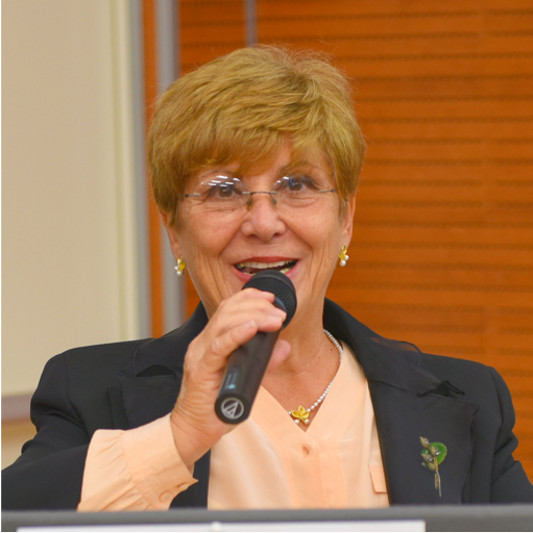
Maria R. Capobianchi
(Istituto Nazionale Malattie Infettive Spallanzani, Roma, Italy)
Maria R. Capobianchi was graduated in Biology (1976) and obtained her specialty degree in Microbiology and Virology (1988). Since the year 2000, she is the Director of the Laboratory of Virology and of BSL3/BSL4 facility at the National Institute for Infectious Diseases (INMI), Rome, where she is in charge of diagnostic and research activity on viral diseases. Since 2015 she chairs the Department of Epidemiology, Preclinical Research and Advanced Diagnostics.
Dr. Capobianchi has more than three decade-long expertise in basic and diagnostic virology, is particularly skilled on emerging viral infections, is member of the “WHO collaborating center for clinical care, diagnosis, response and training on Highly Infectious Diseases” established at INMI in 2009. She has served as an expert for West Nile, Chikungunya, Ebola, SARS-CoV-2 and other emerging viruses to numerous public health organizations including the ECDC, the Italian Ministry of Health, the National Transplant Center and the National Blood Center.
Research activity is focused on viral pathogenesis, naturally and acquired antiviral immunity, molecular epidemiology of viruses, emerging/re-emerging viral infections, design and validation of innovative diagnostic methods.
Dr. Capobianchi is an active member of international microbiology societies and participates to several networks focused on emerging infections. She has been project and program manager of numerous research projects funded by domestic institutions (Italian Ministry of Health, Lazio Regional Health Authority), and international bodies (European Union, US Food and Drug Administration).
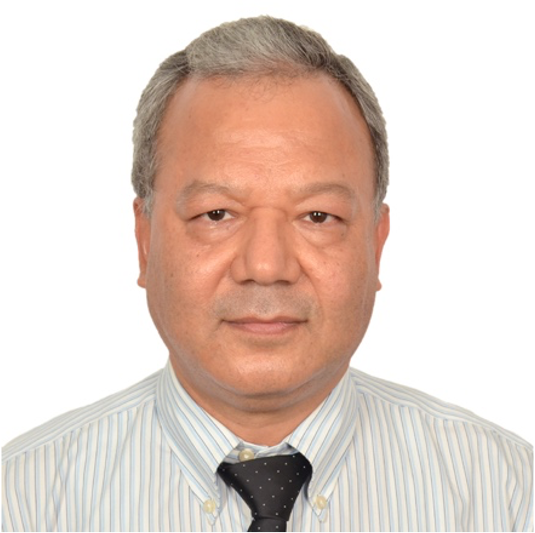
Gyanendra Gongal
(World Health Organization Regional Office for South East Asia)
Presently Dr Gyanendra Gongal is working as a Regional Advisor (Food safety) at the World Health Organization Regional Office for South East Asia. He received Doctor of Veterinary Medicine (DVM) degree from the Moscow Veterinary Academy in 1988 and Master of Science on Epidemiology from the Free University of Berlin in 1996. He worked in various capacities in Government of Nepal under Ministry of Health and Ministry of Agriculture from 1988 to 2006.
He has been working with WHO since May 2006. He started international career as a WHO consultant in Maldives in 2005 and FAO consultant in Sri Lanka in 2006. He has been one of the active members of the regional tripartite group (FAO-OIE-WHO) in the Asia-Pacific region to advocate operationalization of ‘One Health’ in tripartite platforms since 2010 which has helped to promote better understanding of intersectoral collaboration for addressing emerging infectious diseases including zoonoses, antimicrobial resistance (AMR) and food safety at the human-animal interface. He has been involved in developing regional strategy, guidelines and policy papers for prevention and control of emerging infectious diseases including zoonoses and food safety. He has contributed in advocacy and promotion and operationalization of One Health in the Asia-Pacific region and establishment of functional National Codex Committees in several Asian countries. He received young scientist award from the Nepal Academy for Science and Technology in 1999 and WHO Reward for Excellence in 2016. He is a fellow of the Indian Association for Veterinary Public Health Specialists and honorary member of the Association for Prevention and Control of Rabies in India. He is recipient of Dr. A.T. Sherikar Outstanding Public Health Veterinarian Award in 2021. He is a Member of the One Health Network for the Global Governance of Infectious Diseases and Antimicrobial Resistance (Global 1HN) Advisory Committee based in Canada.
He has an interest on zoonoses, food safety, One Health, international health and epidemiology. He has been peer reviewer of more than 20 international journals. He has attended more than 310 national and international meetings, conferences and workshops and published more than 64 technical papers on transboundary animal diseases, emerging infectious diseases including zoonoses, food safety and One Health.
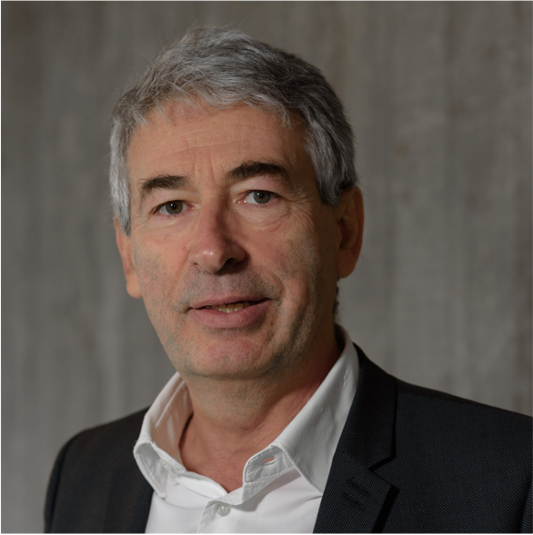
Jacques Izopet
(Centre de Physiopathologie de Toulouse Purpan, Toulouse, France)
Jacques Izopet is Professor of Virology at Toulouse University and head of the Federative Institute of Biology at Toulouse University Hospital. He is deputy director of the INFINITY Center of Toulouse – INSERM UMR1291 / CNRS UMR5051. He is also head of a research team in this center. This team is interested in viral persistence, host response and pathophysiology. His research is focussed on HIV tropism, hepatitis E virus and SARS-Cov-2, in immunocompetent and immunocompromised patients. He has published over 500 papers in international journals.
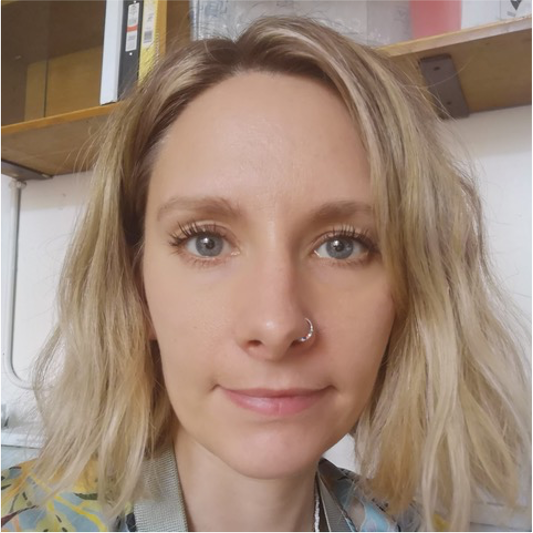
Kirstyn Brunker
(University of Glasgow, UK)
My research interests lie in the application of genomics within One Health-based systems to improve animal/human pathogen surveillance. I completed a PhD in ecology and evolutionary biology at the University of Glasgow in 2016, where I established whole genome sequencing and phylogenetic pipelines to study rabies virus transmission in Tanzania. Since then I have continued work on viral genomics as a postdoctoral research associate in Glasgow, establishing local “accessible” genomic surveillance platforms using nanopore sequencing in East Africa and sites in Southeast Asia and Latin America.
Web: https://www.gla.ac.uk/researchinstitutes/bahcm/staff/kirstynbrunker/
______________________
Day 5
Vector-borne viruses
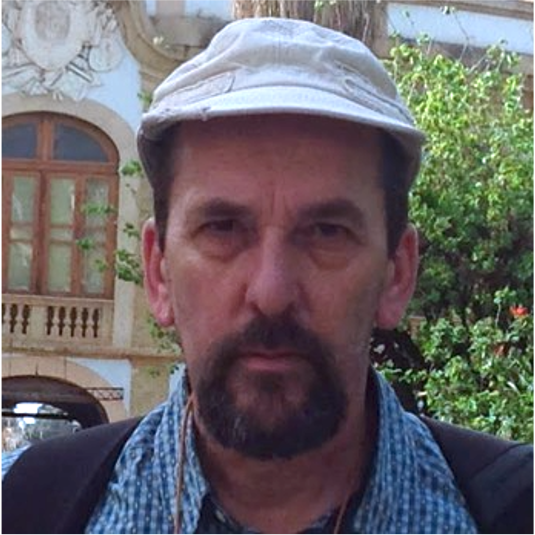
Romeo Bellini
(Centro Agricoltura Ambiente, Italy)
He graduated in Agricultural Sciences from the University of Bologna (1983), where he also obtained his PhD in Agricultural Entomology (2005). Since 1992 he has been in charge of the Entomology and Zoology Health Sector of the Centro Agricoltura Ambiente “G.Nicoli” (www.caa.it), where he coordinates a working group engaged in research projects, experimentation and application in the management of harmful organisms, with particular interest in biological control systems. He is Scientific Officer of the IAEA Collaborating Centre on the application of the sterile male technique to mosquitoes managed by CAA (2011-2015 and 2017-2021) and has been conducting entomological missions abroad on behalf of several international organisations (WHO, ECDC, IAEA, EFSA).
Web: https://www.caa.it/it/staff/romeo-bellini
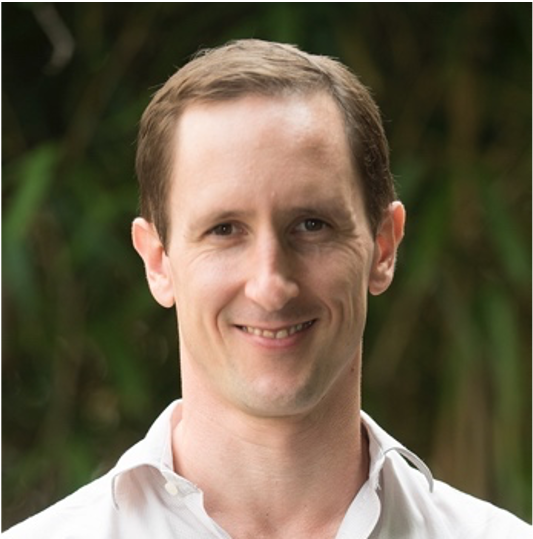
Louis Lambrechts
(Institute Pasteur, Paris, France)
Dr. Louis Lambrechts is a Research Director in the Department of Virology at Institut Pasteur in Paris, where he heads the Insect-Virus Interactions Research Unit. After graduating from Ecole Normale Supérieure in Paris, he obtained a PhD in Ecology in 2006 for his work on interactions between mosquitoes and malaria parasites at University Pierre & Marie Curie in Paris. During his postdoc, he was supported by a European Marie Curie fellowship to study interactions between mosquitoes and dengue viruses at the University of California in Davis and in the Laboratory of Genetics and Evolution of Infectious Diseases in Montpellier, France. In 2010, he joined the Institut Pasteur in Paris where he became a Research Scientist of the French Centre National de la Recherche Scientifique (CNRS) in 2011, a Junior Group Leader in 2013, and Unit Head in 2019. To date, he has authored over 80 scientific publications. He was awarded a CNRS Bronze Medal in 2018 and the Pasteur Vallery-Radot Prize in 2020. He is currently involved in several international research programs on dengue and Zika.
Web: https://research.pasteur.fr/en/team/insect-virus-interactions/
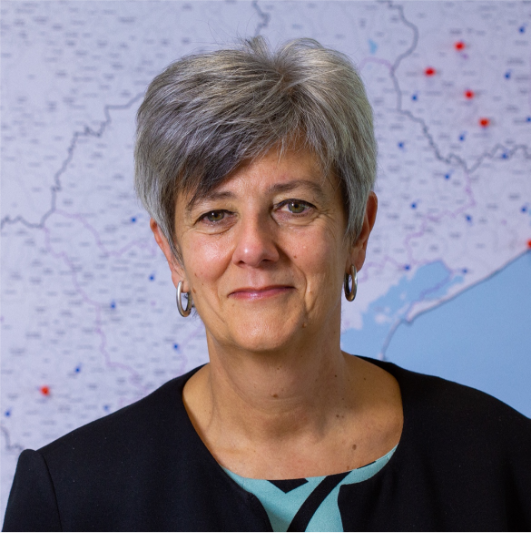
Gioia Capelli
(Istituto Zooprofilattico Sperimentale delle Venezie, Padova, Italy)
Gioia Capelli was appointed Director of Science of the Istituto Zooprofilattico Sperimentale delle Venezie (IZSVe) in October 2020.She graduated in veterinary medicine in 1986 from the University of Bologna and obtained a PhD in parasitology and parasitic diseases in 1989. From 1991 to 1994 she worked as a veterinarian at the IZSVe, where she set up the Parasitology Laboratory. In the same year she moved to the Faculty of Veterinary Medicine at the University of Padua, first covering the position of Researcher and then of Associate Professor until 2004. She the returned to the IZSVe as a veterinarian, and in 2016 she was appointed Director of the National Reference Center/OIE collaboration center for scientific research on infectious diseases at the animal/human interface.Since 2006 she has been a member of the European College of Veterinary Parasitology (DiplEVPC); she is a founding member of the Italian Association of Veterinary Epidemiology (AIEV), the Italian Society of Parasitology (SoIPa) and the Italian Society of Ecopathology of Fauna (SIEF); she is a member of the scientific board of the Friedrich-Loeffler-Institut (Germany) and of the editorial board of the journal ‘Veterinaria Italiana‘.Her research interests mainly embrace the epidemiology of parasitic and vector-borne diseases, in particular zoonotic and emerging ones; the ecology of vectors and the surveillance of tick-borne diseases (Anaplasma, Lyme borreliosis, TBE virus, Rickettsiae), fleas (Rickettsia felis), culicides (West Nile virus and other Flaviviridae, filariae) and sand flies (Leishmania). She has authored or co-authored over 180 articles published in international scientific journals.”
Web: https://www.izsvenezie.com/
Science communication

David Quammen
David Quammen is an American author and journalist whose sixteen books include The Song of the Dodo (1996), The Reluctant Mr. Darwin (2006), and The Tangled Tree (2018). His 2012 book, Spillover: Animal Infections and the Next Human Pandemic, described the dynamics of viral spillover from wildlife into humans and predicted a coming pandemic, possibly caused by a coronavirus. Quammen’s magazine work has appeared in The New Yorker, National Geographic, Harper’s, The Atlantic, Rolling Stone, and The New York Review of Books, among other magazines, and his Op Eds in the New York Times and other newspapers. He’s a three-time winner of the National Magazine Award and has received several awards for his books. He shares a home in Bozeman, Montana, with his wife, Betsy Gaines Quammen, author of the book American Zion, plus two borzois, a cross-eyed cat, and a rescue python named Boots.
Web: https://www.davidquammen.com
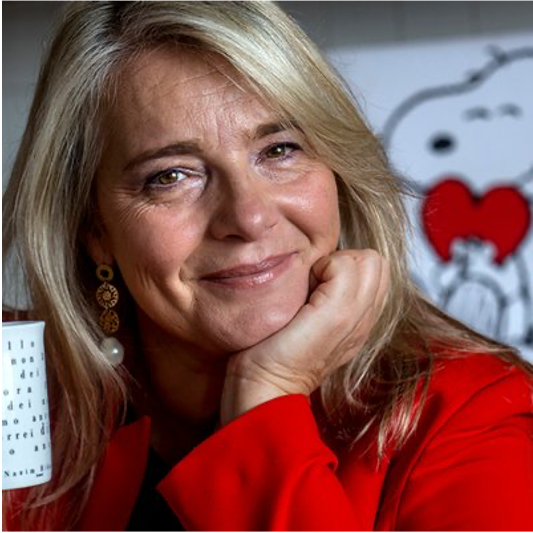
Roberta Villa
A freelance journalist with a degree in medicine, Roberta Villa has worked for more than twenty years with the Health pages of Corriere della Sera and still contributes to many other Italian and international print and online publications, including Wired and Le Scienze and to the website “Dottore, ma è vero che?”, an initiative of the Federazione Nazionale degli Ordini dei Medici ed Odontoiatri (FNOMCeO).
In recent years, she has delved into the topic of vaccinations, especially with regard to the role of communication, including in response to hoaxes and fake news, for which she was appointed to the government’s task force against misinformation on COVID-19 on the web. She was responsible for the working group on vaccine communication in the strategic core of the Italian NITAG (National Immunization Technical Advisory Group). She participated in two European projects on communication and response to epidemic and pandemic threats (TELL ME and ASSET) and one on science communication (QUEST), as a research fellow at Ca’ Foscari University in Venice. She is very active on social media, where she is experimenting with a simple and confidential approach to communicating science to the general public.
Together with Antonino Michienzi she is the author of the e-book “Acqua sporca” (2014), an investigation on the Stamina case, and, again with his collaboration, of “Vaccines. Mai così temuti, mai così attesi” (2021), for Chiarelettere, on COVID-19 vaccines. In 2017 she had already written ‘Vaccines. Il diritto di non avere paura” (2017), distributed in a first edition with Corriere della Sera and in a second one (2019) for Pensiero scientifico editore. In 2019 she wrote together with Silvio Garattini the biography of the professor “Il guerriero gentile” for Solferino.
(ITALIANO). Giornalista pubblicista laureata in medicina, Roberta Villa ha collaborato per più di vent’anni con le pagine di Salute del Corriere della Sera e ancora oggi con molte altre testate cartacee e online, italiane e internazionali, tra cui Wired e Le Scienze. Contribuisce al sito “Dottore, ma è vero che?”, iniziativa della Federazione Nazionale degli Ordini dei Medici ed Odontoiatri (FNOMCeO).
Negli ultimi anni ha approfondito il tema delle vaccinazioni, soprattutto per quanto riguarda il ruolo della comunicazione, anche in risposta a bufale e fake news, per cui è stata nominata nella task force del governo contro la disinformazione su COVID-19 in rete. È stata responsabile del gruppo di lavoro sulla comunicazione dei vaccini nel nucleo strategico del NITAG (National Immunization Technical Advisory Group) italiano. Ha partecipato a due progetti europei sulla comunicazione e la risposta alle minacce epidemiche e pandemiche (TELL ME e ASSET) e a uno sulla comunicazione della scienza (QUEST), come research fellow dell’Università di Ca’ Foscari a Venezia. È molto attiva sui social media, dove sta sperimentando un approccio semplice e confidenziale alla comunicazione della scienza al grande pubblico.
Insieme ad Antonino Michienzi è autrice dell’e-book “Acqua sporca” (2014), un’inchiesta sul caso Stamina, e, sempre con la sua collaborazione, di “Vaccini. Mai così temuti, mai così attesi” (2021), per Chiarelettere, sui vaccini anti COVID-19. Nel 2017 aveva già scritto “Vaccini. Il diritto di non avere paura” (2017), distribuito in una prima edizione con il Corriere della Sera e in una seconda (2019) per il Pensiero scientifico editore. Nel 2019 ha scritto insieme a Silvio Garattini la biografia del professore “Il guerriero gentile” per Solferino.
Web: https://www.instagram.com/robivil/ – https://twitter.com/robivil – https://www.facebook.com/lavillasenzavirgola